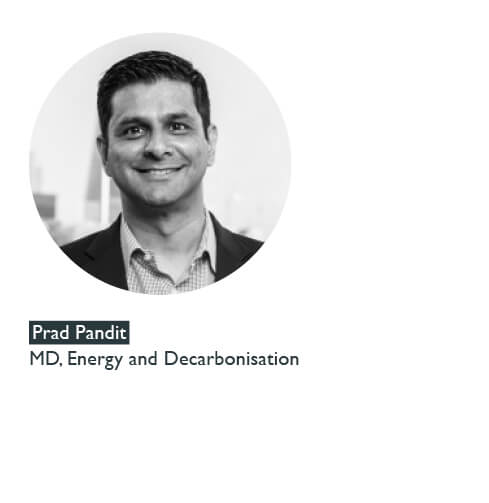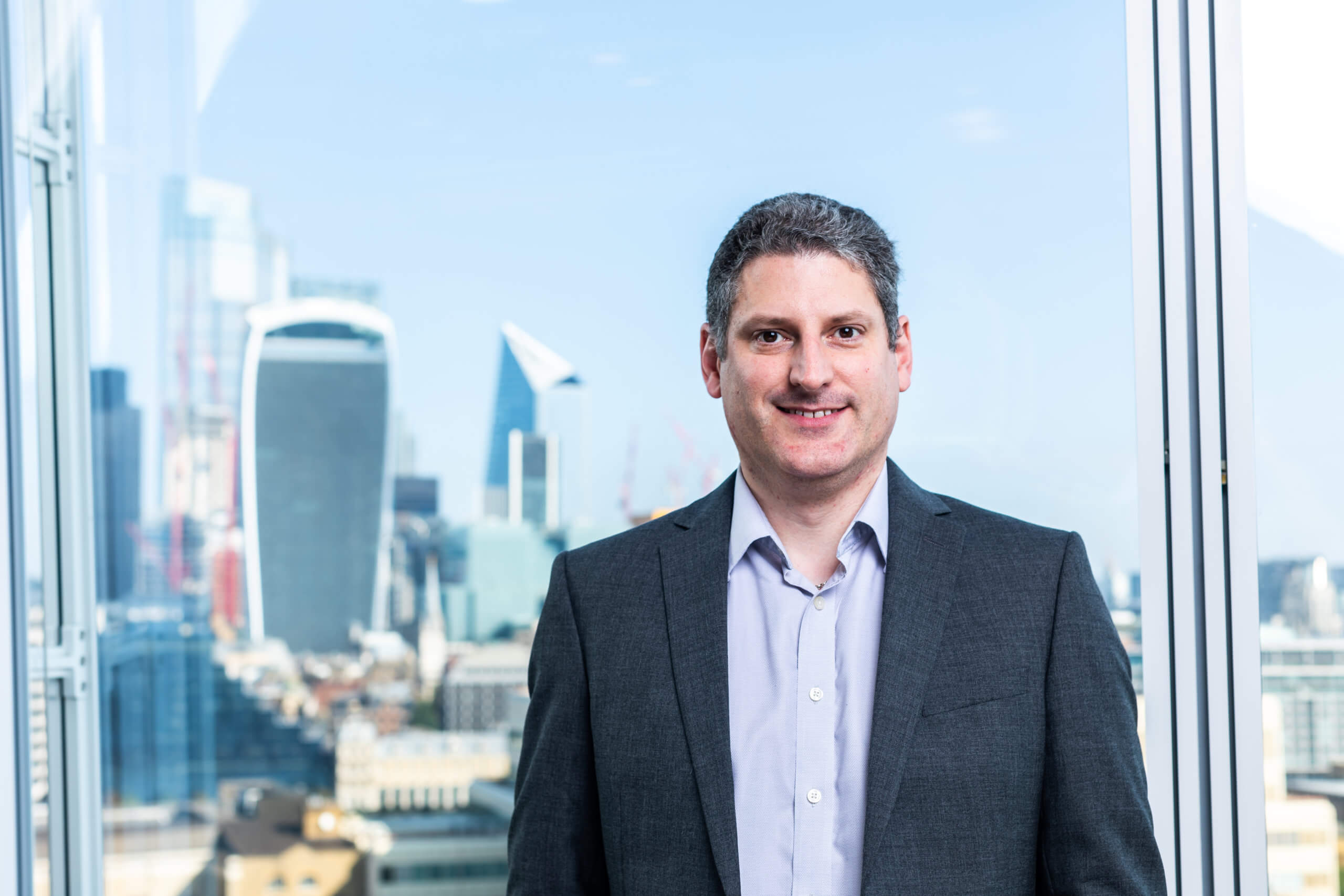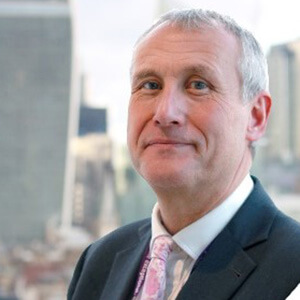Net Zero Navigator 2023
Expert decarbonisation predictions for the year ahead


Foreword
Net zero needs to be tackled at all levels of your organisation.
With rising energy costs and security of supply issues, decision-makers are under pressure from investors, employees and customers to make decarbonisation a priority.
However, achieving the best results requires buy-in at all levels, with every colleague and function of the organisation working towards the common goal of net zero.
Lack of buy-in is one of the greatest barriers to your success. While decarbonisation is already on your leadership team’s agenda, there is likely still work to be done to bring everyone on the journey.
What is the solution? One option is to incentivise carbon action at a middle management level, while being more transparent about your progress with the whole organisation.
Another option is the introduction of decarbonisation KPIs that everyone can get involved with. Empowering all your people to become stakeholders in reaching such an important goal is an excellent way to catalyse change, and will ultimately bring you closer to achieving net zero.
To provide further inspiration for your 2023 decarbonisation activities, we asked experts across our Plan Zero portfolio to share their predictions, insights and advice about what the year ahead has in store.
Dr Steven Fawkes, energy efficiency expert and Managing Partner at the global net zero consultancy, EP Group, has also given his expert view on the big market forces that will be driving the agenda in 2023, and how your organisation can prepare for them.
Also look out for the results of a Mitie client survey, which sheds light on how a range of high-profile customers are tackling decarbonisation, as well as their corresponding priorities and challenges.
Mitie’s Net Zero Navigator will help you reduce carbon emissions, save money and secure your energy supply in 2023, and for the years to come.
“This year, your leadership team needs to think boldly and strategically about getting everyone involved in the journey to net zero. Support from right across the organisation is essential for success.”

Reaching net zero requires decision-makers to apply creative, systematic thinking

Dr Steven Fawkes Managing Partner at EP Group
Everything you need to decarbonise your organisation is ready and waiting.
A new development in the decarbonisation landscape is the convergence of several key factors; low carbon technologies are becoming more affordable, pressure from investors is driving net zero up the board agenda, and there’s renewed focus on energy resilience and gaining independence from the grid.
2022 saw lots of high-level strategic commitments, but the challenge for organisations in 2023 is to turn that strategy into tangible action – especially at a time when the business case for decarbonisation activity is stronger than ever.
This requires a mindset change, reviewing your entire organisation on a holistic level, embracing new models and bringing in outside help where you need it.
Impactful changes can be as simple as adjusting the flow temperature of the boiler, modernising your building management system or investing in smarter, more agile controls.
It’s also a good idea to take a hybrid approach to energy, combining electrification and heat pumps with cheaper solar power.
Once you’ve got these elements right, you can develop wider investment measures in a much stronger position than before.
And don’t be seduced by the promise of new technologies that are 10 years away from coming to fruition. All the tools you need to accelerate your net zero progress already exist. There’s really no reason to wait.
“Don’t throw all your investment into brand new solutions – start by managing what you’ve already got more effectively.”
Mitie’s expert decarbonisation predictions for 2023
We’ve gathered insights and advice from across our Plan Zero portfolio to help accelerate your path to net zero.

Contributors

Alex Avila
Director of Decarbonisation Consulting

Matt Dale
Head of Transport Consulting

Sarah Dorey
Sustainability Analyst

Don Holmes
Head of Natural Environment

Alex Payne
Lead Consultant Energy Advisory

Mike Sewell
Plan Zero Director

Michael Taylor
Managing Director, Waste and Environmental

Catherine Wheatley
Head of Data and Technology, Energy

Alan Whitefield
Head of Energy Markets Research

1. Renewable energy
Surging demand for on-site solar will create supply bottlenecks

Alex Payne Lead Consultant Energy Advisory
Over the past 12 months, organisations have had to contend with an extremely volatile energy market and high supplier risk. But their sustainability targets haven’t gone away.
Demand is now rising for low-cost green energy, Power Purchase Agreements and Renewable Energy Certificates. In fact, demand for green energy is outpacing current UK infrastructure supply capabilities, so there’s only so much to go round.
“With increased government intervention and greater competition, it’s going to become a seller’s market, and the cost of green energy will inevitably rise.”
My best advice is to invest in on-site solar generation. And do it fast.
The necessary Distribution Network Operator (DNO) applications will become a huge bottleneck, with organisations competing for more grid supply and infrastructure upgrades to facilitate their evolving generation, EV and electrification needs. You need to get in early.
These days, on-site solar generation is a cost-effective, future-proof solution with secure prices and secure supply. The business case has never been better, with shorter payback periods and plenty of funding available.
The current energy crisis is a direct consequence of our dependence on fossil fuels – but solar energy is looking more resilient than ever.
of customers we asked are planning to monitor energy usage in response to the energy crisis in 2023
of customers we asked are planning to generate off-grid energy in response to the energy crisis in 2023
The data view
77% of businesses say energy is now their biggest concern
#1 cheapest source of power in the world is solar arrays
80% report that energy is now a board level issue
5 years from now, the world will have added as much renewable power as it did in the previous 20 years

2. Transport
Tardy organisations will get stuck in the EV fleet rush

Matt Dale Head of Transport Consulting
As everyone enters the race to decarbonise fleets before the Government’s 2030 deadline, the longer you put off EV transition, the longer the process will take.
Many of the barriers to EV adoption haven’t gone away, including issues with commercial vehicle availability and escalating lead times.
Another big reason for slow EV uptake is concern around adequate charging infrastructure. A vast network of accessible charging points is necessary for organisations to maintain an efficient fleet.
To tackle these concerns, it’s a good idea to install prominent EV charging points on your estate. Not only will this provide colleagues with a convenient place to top up, but it will also act as a visual reminder of your organisation’s commitment to reaching net zero.
And as sustainability becomes more important to the general population, such measures are known to help with the attraction and retention of employees. Indeed, EV charging points at the workplace are increasingly viewed as an employee benefit.
“Because of its multifaceted nature, EV transition is no longer just the remit of your fleet manager – it will require a coordinated effort from your FM, sustainability lead, finance team and even HR.”
With the rapid expansion of EV fleets, the coming year may well see delays in installation of necessary infrastructure due to semiconductor shortages and grid upgrade capacity issues. Manufacturers will also start to reduce the number of internal combustion engines they produce before 2030.
The worst thing you can do is to do nothing at all. For each phase of your EV transition, set yourself a deadline for completion; the whole thing will start to feel a lot more manageable.
of Mitie customers we asked are extremely likely to invest in EV in 2023
of Mitie customers we asked plan to purchase green energy in 2023
The data view
62% annual increase in global EV sales over the last four years
22,000 electric vans have been shipped in 2022 – a 49% increase from 2021
20% of EV drivers now charge at their workplace
36% of customers would be put off by the insufficient number of EV chargers

3. Nature
Enhancing biodiversity will take root to become a legal requirement

Don Holmes Head of Natural Environment
Thanks to an increased focus on nature at COP27, the world is now realising that the climate crisis and biodiversity are inextricably linked.
In 2023, organisations need to change how their sites are maintained, moving from a traditional grounds maintenance model to a more wildlife aware approach.
For example, laying rather than cutting a hedge can protect vulnerable species like hedgehogs. By partially cutting and then bending the stems at ground level, you can rejuvenate hedgerows and avoid damage to natural animal habitats.
Biodiversity is still very much an emerging consideration for organisations, and most are at the beginning of the process.
In practical terms, this means baselining, monitoring and gathering data around the number and condition of species and ecological systems present on your sites, plus assessing your organisation’s impact, and exploring the financial implications of nature-positive initiatives.
There’s some hesitancy about investing in biodiversity as it is currently voluntary and accreditations are evolving, but ultimately organisations that do not invest will lose out.
“Where industries like construction already have legal requirements to increase their biodiversity, others will inevitably follow. And the best thing you can do in 2023 is take action now and get ahead.”
By the time legal requirements come into place, it will be much harder (and costlier) to demonstrate your progress and meet KPIs retrospectively without already having the right baseline data.
of Mitie customers we asked are likely or extremely likely to invest in biodiversity, landscaping and carbon removal in 2023
The data view
54% of human-related carbon dioxide emissions have been absorbed by nature over the past decade
62% of firms have plans to address their biodiversity impact, but only 15% have reached implementation
52% of business leaders see reputational benefits as a significant incentive for biodiversity
5% of companies carry out science-based assessments of their operational impact on nature

4. Buildings
Data will make or break decarbonisation efforts

Alex Avila Director of Decarbonisation Consulting
When it comes to decarbonisation, 2023 will be all about the quality of your data and the rigour of your processes. After all, good data is essential for predicting, monitoring and subsequently reducing emissions.
Reporting and compliance requirements around energy consumption and carbon emissions are becoming more stringent this year, covering more energy use types and applying to a broader range of companies.
To remain compliant and demonstrate your progress, you will need access to holistic and accurate data to generate the required insights across your entire estate, including buildings and fleets.
Technology is a crucial piece of the puzzle, linking building performance, energy consumption, occupancy patterns and carbon emissions – especially after so much change to working habits since the pandemic.
While Internet of Things (IoT) and automation has been a key enabler of effective building management systems, Artificial Intelligence (AI) is increasingly becoming a vital tool. AI can provide insight to your carbon footprint and, in turn, identify ways to reduce it, while maintaining appropriate levels of comfort.
“Start by harnessing data and AI to diagnose any problems and rationalise your estate. Use these insights to ask yourself: do you actually need all your sites? How could they operate more effectively? How much energy are you using and where can you cut back?”
Ultimately, the value of your 2023 data will not be the report you produce – it will be the corresponding actions taken to decarbonise your estate.
of Mitie customers we asked will invest in smart buildings capabilities (e.g. 5G and IoT) to measure carbon emissions in 2023
The data view
66% of IT leaders are either using AI to achieve sustainability goals or planning to do so
78% of business leaders cite low access to AI expertise as an obstacle to AI adoption
Only 17% of execs use data from measurement tools to optimise their sustainability strategies
4billion+ connected IoT devices in commercial smart buildings by 2028
IBM; Harris Poll; BCG; Gartner

5. Water
Water's vital role in decarbonisation will become crystal clear

Michael Taylor Managing Director, Waste and Environmental
Water is a resource that we so often take for granted – but organisations cannot function without it.
We’ve now reached a critical tipping point, with drinking water likely to be a scarce commodity in some areas of the UK by 2050. This is not surprising if you consider the ‘water footprint’ of everyday essentials.
The droughts, water shortages and hosepipe bans during 2022 have put water risk on the map for many decision-makers and it needs to be at the top of the board agenda.
As a result, 2023 will see a significant shift in attitudes towards the huge carbon footprint of water, with greater awareness about the energy required to treat, process and distribute water and waste water.
“Water might be cheaper than energy, but you still need to reduce consumption in order to transform your carbon emissions.”
A good first step is to conduct a thorough water audit, investigating how you purchase water, what you’re using across your estate, and how much is wasted through over-consumption or leakages. Many of the solutions are straightforward and low-cost, from rainwater harvesting to vapour capsules on taps.
By focusing on water in 2023, you’ll make cost and carbon savings, and find stable ways to future-proof your organisation against drought.
By 2030 worldwide demand for water will outpace supply by 40%
2023 drought conditions cannot be avoided with current average winter rainfall levels
x3 more financial risk associated with water scarcity than with carbon risk
15% more companies are reducing or maintaining their level of water consumption

6. Waste
Plastic recycling will become a profitable priority

Sarah Dorey Sustainability Analyst
Plastic has become taboo in sustainability terms, but it’s actually only poorly managed plastics that are bad for the planet. And in 2023, the demand for recycled plastics will be higher than ever.
When polymers are effectively captured and reprocessed, plastic waste is a fully regenerative resource – unlike bioplastics (produced from biomass such as vegetable fats and oils), which aren’t widely recycled in the UK.
“Making plastic is a highly expensive, energy-intensive process. By contrast, reusing your plastic is more energy efficient and will mean a significant cost and carbon saving for your organisation.”
While the concept of plastic recycling is nothing new, the global campaign against single-use plastics is gaining momentum and the demand for pure bundles of recycled plastic is accelerating – just think of the number of messages on everyday products like water bottles about the use of recycled materials.
The UK Government is planning to introduce deposit return schemes, where plastic is collected, sold and used again. Scotland will be launching its own version in August this year.
In 2023 it will be more important than ever for your organisation to start treating plastic waste as a valuable by-product.
On a practical level, this means gaining visibility over just how much waste you’re producing. Then, it’s about educating your people to reduce their consumption.
Introducing mini-treatment centres across your site is a great way to sort and segregate waste, re-using or re-selling as much as possible.
Energy efficiency and renewable energy will only address 55% of global emissions, so we urgently need to transform the way we make and use products. The place to start is plastic recycling, which offers a simple, low-cost way to achieve excellent results.
of Mitie customers we asked say waste management is part of their 2023 net zero strategy
The data view
60% price premium for high-quality recycled plastics over virgin plastics in past decade
Only 9% of the global volume of plastics was recycled in 2019, and 22% was mismanaged
17% of England and Wales’ waste cannot be recycled due to contamination
50%+ of FMs said they had waste management strategies with clear environmental targets

7. Energy
A culture of conscious consumption will take centre stage

Alan Whitefield Head of Energy Markets Research

Catherine Wheatley Head of Data and Technology, Energy
In 2023, finding a happy medium on energy price is going to be challenging. Energy should be affordable, but organisations must remain conscious about consumption.
The good news? Actions that reduce energy consumption and costs also reduce carbon emissions. More carbon-conscious mindsets and energy-efficient decisions are a positive consequence of the difficult situation in which organisations find themselves.
“This new carbon literacy is critical at a time when decarbonisation is too often seen as an investment choice rather than an everyday philosophy: use less, buy smarter and keep your costs down.”
To kickstart this culture change, your number one priority should be to forecast your energy consumption and costs. It’s important to factor in everything from the weather conditions to building usage patterns and hybrid working to invisible consumption caused by equipment being left on needlessly overnight.
Using these insights, you can then implement strategies to change the way people think about and use energy across your organisation.
A strong data service is a key building block to help you make this happen – one that can automate as many data points as possible, arming you with real-time insights from multiple data streams.
And you’ll probably need a data scientist to help you. You might already have access to your consumption data, but the challenge is to knit that data together to create actionable insights.
While your top priority might be helping your organisation to survive the current economic turmoil, this will be temporary. If you’ve been forced to pause your decarbonisation activities, 2023 will be about getting back on the path to net zero as quickly as you can – and this starts by changing the way your people think about energy.
of customers we asked are planning to monitor their energy usage in response to the energy crisis
of Mitie customers we asked are planning to educate their employees about how to reduce their energy consumption in 2023
The data view
45% of decision-makers leave equipment on needlessly overnight
20% of businesses have been forced to de-prioritise net zero delivery due to rising energy prices
25% of businesses cite cost as the biggest barrier to sustainability for their organisation
25% of businesses say shareholders and investors don’t see the link between sustainability and profit

8. Strategy
Greater clarity will drive decarbonisation confidence

Mike Sewell Plan Zero Director
A lot can happen in a year. At the start of 2022, we were just at the precipice of the Russia-Ukraine conflict, the energy crisis and soaring prices.
In reaction to this extreme volatility, many organisations have understandably focused on short-term, cost-cutting measures, letting other priorities fall by the wayside.
After all, it is hugely challenging to plan a long-term decarbonisation strategy and take decisive action when you don’t have a clear view of the energy market from one week to the next.
But as we move into 2023, the pervasive uncertainty is lessening – the national grid is stepping up, the UK is relatively well-sourced for alternative energy, and we can have greater confidence in our supply.
Now is the time to dial up your decarbonisation activities, not reduce them.
Although the price of energy will continue to rise in 2023, we now have a much better idea of what the coming year looks like. This will enable more accurate price predictions, empowering you to plan your energy strategy proactively.
With a more solid baseline for decision-making and greater certainty about the payback of decarbonisation measures, it will become significantly easier for you to make the business case for change with clarity and confidence this year.
“Now is the time to increase decarbonisation activity – with a strong focus on cost saving – and start making change at scale. Remember – there’s no single journey to net zero, and you don’t need to solve everything in 2023.”
Decarbonisation will become the new normal this year, with a surge in activity across every industry. As long as you make proactive decisions and start implementing them now, you still have time to get it right.
of Mitie customers we asked say they are most worried about economic pressures and oncoming recession in 2023 – it’s the top concern for our customers this year
The data view
90% of businesses predict that the cost of energy will increase over the next 12 months
50% of CEOs are planning to pause or reconsider their ESG efforts in the next 6 months
25% of businesses have been forced to delay plans to decarbonise their supply chains due to inflation
38% of all global energy-related carbon emissions originate from the built environment sector
Book a discovery session to kickstart your 2023 decarbonisation activities
We’re here to help accelerate progress and achieve your net zero goals across energy, waste, water and beyond.
From quick wins with what you already have, to holistic decarbonisation of your estate, get started now with a no obligation Mitie Plan Zero discovery session.
To book your slot and gain expert guidance on next steps, simply fill in the form and we’ll be in touch soon.